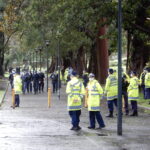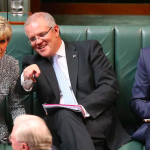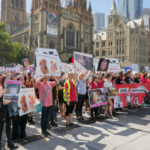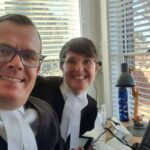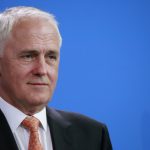The Prohibition on Protests Is About Silencing Dissent, Not Stopping the Spread
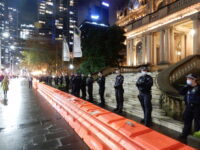
We all saw the photos of our beloved leader Scott Morrison waving a football scarf around his head and sinking a few cold ones on 13 July 2020, as he was surrounded by mates at Sydney’s Kogarah Oval. Meanwhile, down in Melbourne, the city was in lockdown due to the intensifying COVID outbreak.
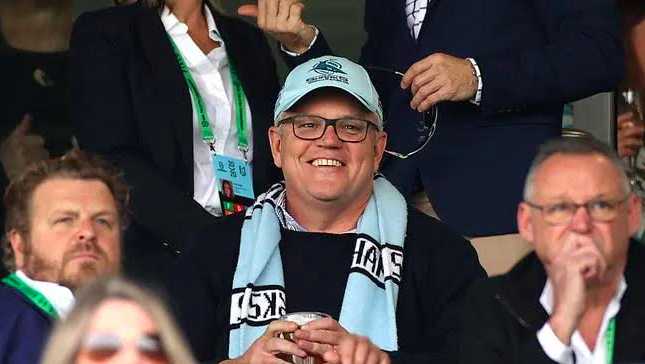
But that’s no problem when you’re the head of Corporation Australia, because barracking in the stands at the packed stadium, milling about the crowded shopping mall trying to find a bargain, and work drinks at the CBD pub on a Thursday evening are all permitted during the ongoing pandemic.
What isn’t authorised, though, is standing up for the rights, and indeed, the lives of those Australia Corp doesn’t deem worthy. Because regardless of whether people wear masks, keep socially distant and refrain from standing in groups beyond the sanctioned amount, protests are being silenced.
This is particularly the case for certain causes. The NSW Police Force has been at pains to shut down First Nations protests, taking the Black Lives Matter rally organisers to court three times, as well as sending in enough troops to outnumber those gathered to demonstrate on several occasions.
And the same can be said for the cause of asylum-seeking detainees. Australia Corp henchpeople have been out in their various state badges stamping out those attempting to draw attention to the plight of these victims of a settler colonial system that scoffs at international human rights treaties.
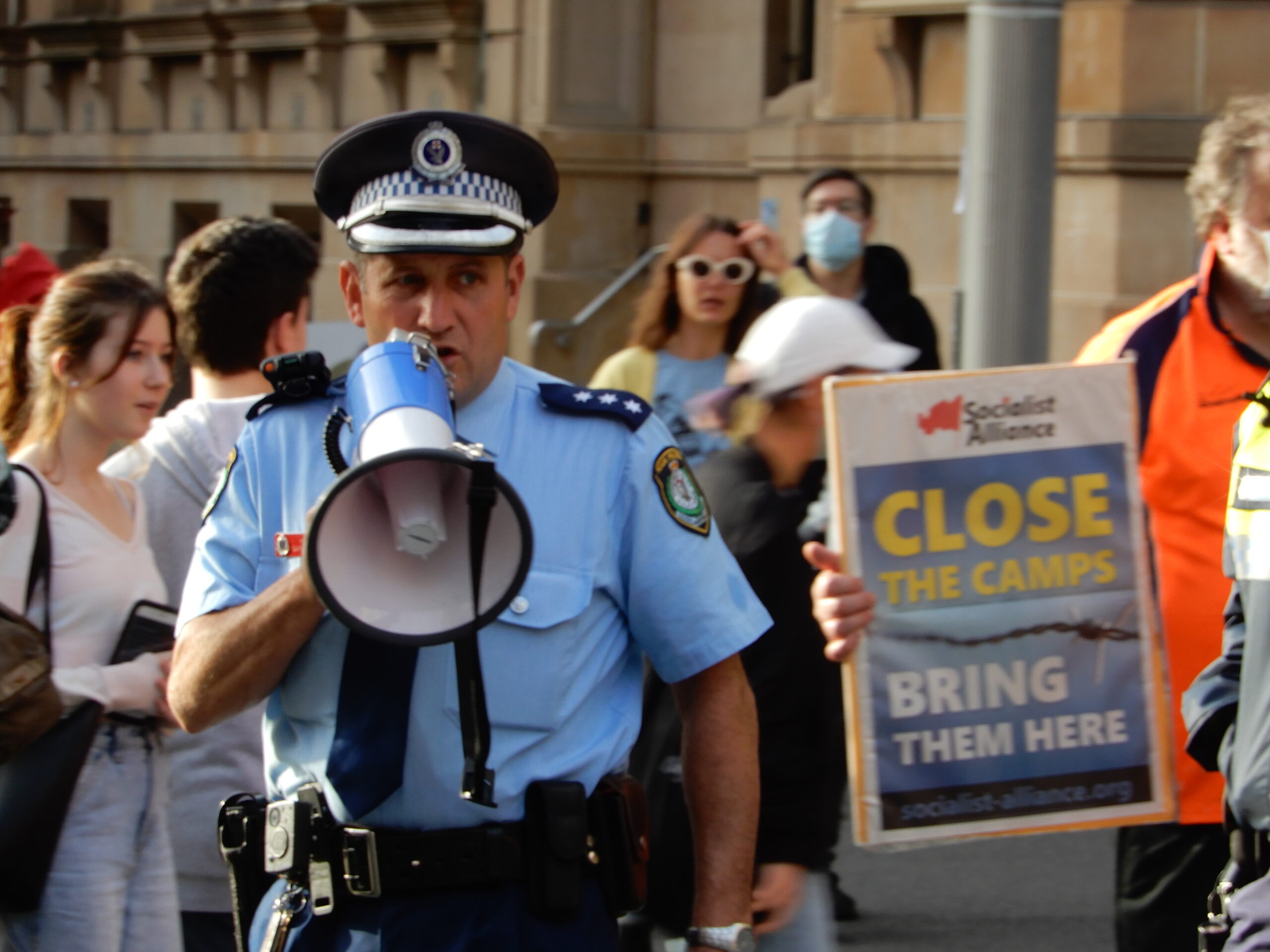
A disconnect in permitted activities
UTS Jumbunna Institute senior researcher Paddy Gibson told Sydney Criminal Lawyers last week that “there is no logic whatsoever” between the restrictions being placed upon protests – which are classed as outdoor gatherings – and indoor events.
Gibson referred to the restrictions set out in the Public Health (COVID-19 Restrictions on Gathering and Movement) Order (No 4) 2020, which permit “a 500 person unseated, unticketed indoor gathering”, but don’t allow for outdoor gatherings of more than 20 people.
“It is safer to be outdoors than indoors,” said Gibson, while he was at the NSW Supreme Court representing the Dungay family against the NSW police commissioner, as he attempted to have last Tuesday’s BLM rally outlawed. “That to me is just a blatant attempt to try and stop protests.”
The Supreme Court ruled that the protest couldn’t proceed, despite there being no evidence that a similar BLM rally on 6 June involving thousands led to any virus transmissions.
So, the Justice for David Dungay Junior campaign announced a COVID-compliant rally would still be going ahead.
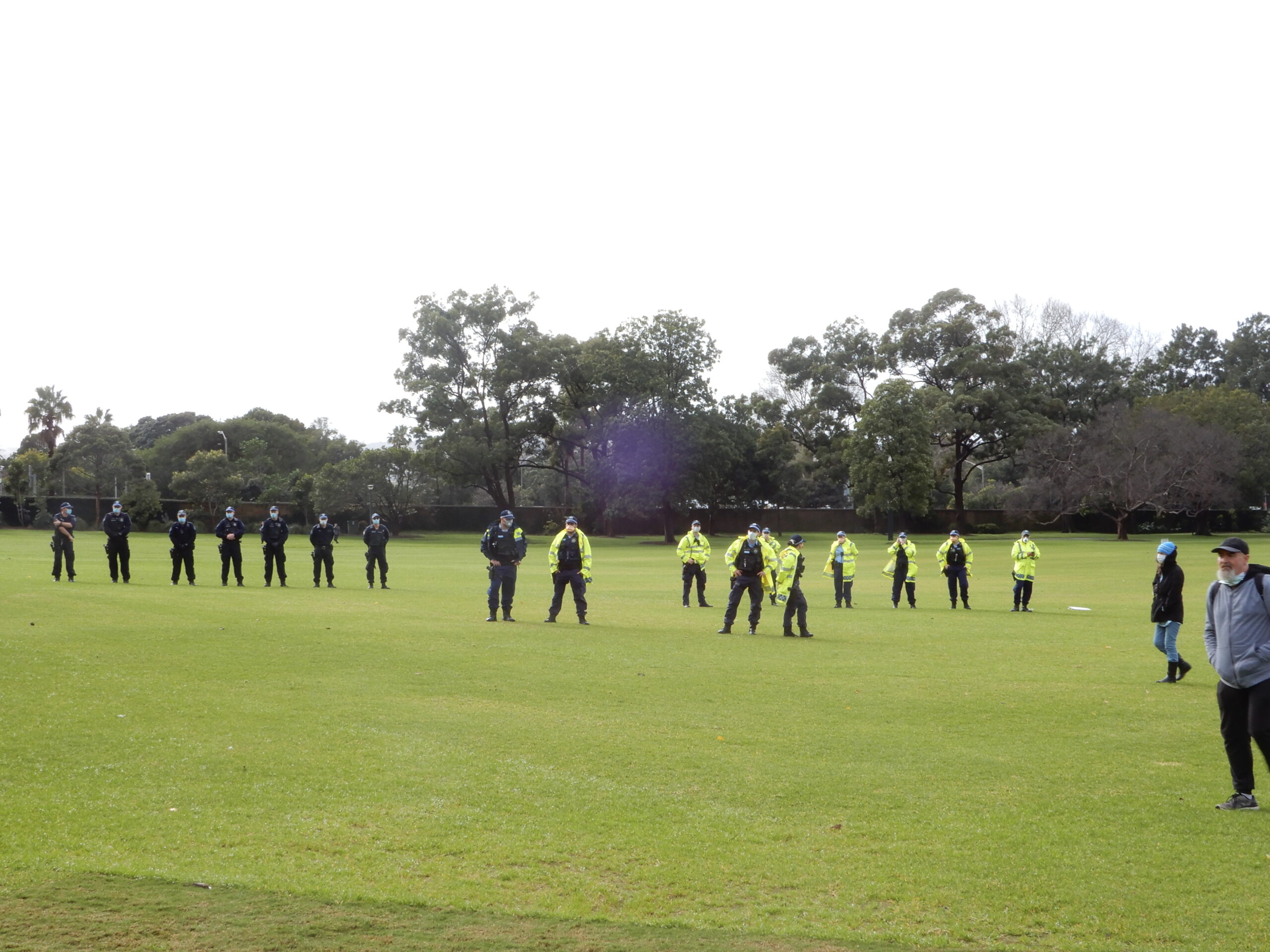
A convenient reading
On 28 July 2020, the day of the BLM rally, hundreds of officers were deployed to the Domain to police very few protesters. Officers disbanded the protest COVID team that was there to distribute masks and hand sanitiser, and then promptly began arresting protesters who weren’t gathered in groups.
Police were able to detain people that weren’t forming cohesive groups of more than 20, as the official health order defines a public gathering as “a meeting or assembly of persons for a common purpose, including an organised or planned event, in a public place”.
So, under the current law, citizens cannot appear in numbers of more than 20 in a public if they have a “common purpose” regardless of whether they practice social distancing or not.
And these circumstances led police on Tuesday to follow protesters from the Domain into the CBD to continue to harass them and even arrest some.
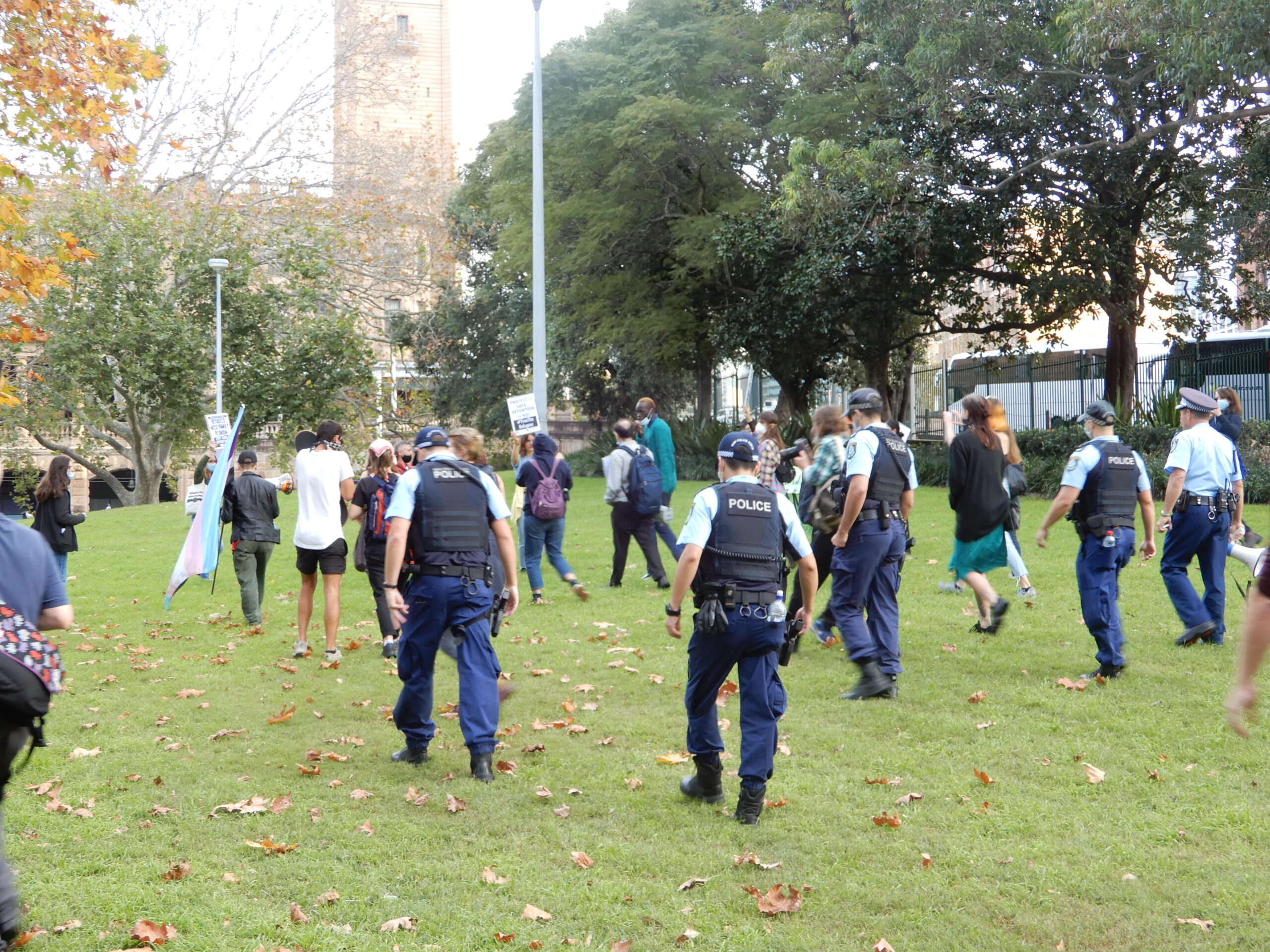
“I stopped these”
Gibson said that based on his experience of having taken part in a number of demonstrations for different causes since the pandemic commenced, he could testify to the fact that police are targeting the BLM rallies that have been protesting police brutality against First Nations people.
The other key cause authorities have sought to silence by cover of COVID is the campaign to free the refugees, which isn’t so surprising as Australia Corp CEO Scott Morrison has a trophy in the shape of a boat in his office that brags about how he stopped asylum seekers arriving on Australian shores.
One of the most dramatic displays of the bias in the approach to protests concerning refugees was when Victoria police shut down a COVID-compliant car convoy protest on 10 April that was drawing attention to former offshore detainees being held in the Mantra Hotel in Melbourne.
Officers handed out $43,000 in fines to demonstrators in cars transporting no more than two people from the same residence.
And similar protests in Brisbane alerting the public to 120 former offshore detainees being held long-term at the Kangaroo Point Hotel have been receiving intense police attention as well.
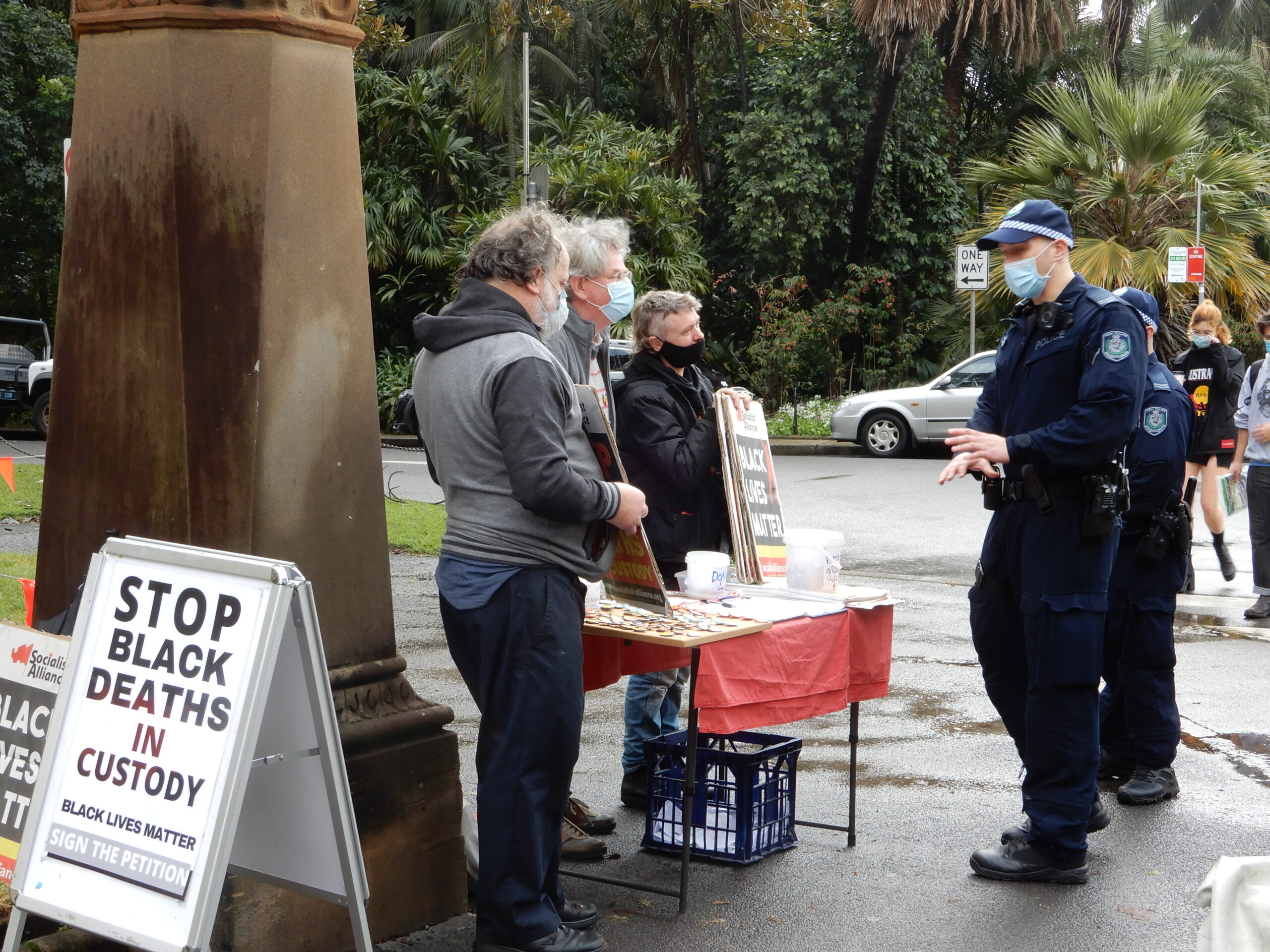
Double standards
Anti-lockdown protests were held in Melbourne and Sydney in early May, which were then followed by much larger ones – that included anti-vaccination and anti-5G contingents – in both those cities and Brisbane towards the end of that same month.
Yet, these protests – that weren’t about violence towards First Nations people, nor the continued detainment of refugees in immigration facilities – were left to go ahead.
Police were present, and they gave demonstrators a warning. But officers also allowed them to let off some steam.
On 30 May, around 500 anti-lockdown protesters converged “for a common purpose” in Sydney’s Hyde Park. After speakers addressed the crowd, demonstrators marched towards NSW parliament, singing antivaxxer songs as they moved passed police officers, who made no intervention.
Five days later, the police commissioner took the June BLM rally organisers to the Supreme Court to block the protest. A last minute reprieve allowed the march to go ahead with a huge police presence watching over. And some officers attacked a group of young protesters with pepper spray at Central.
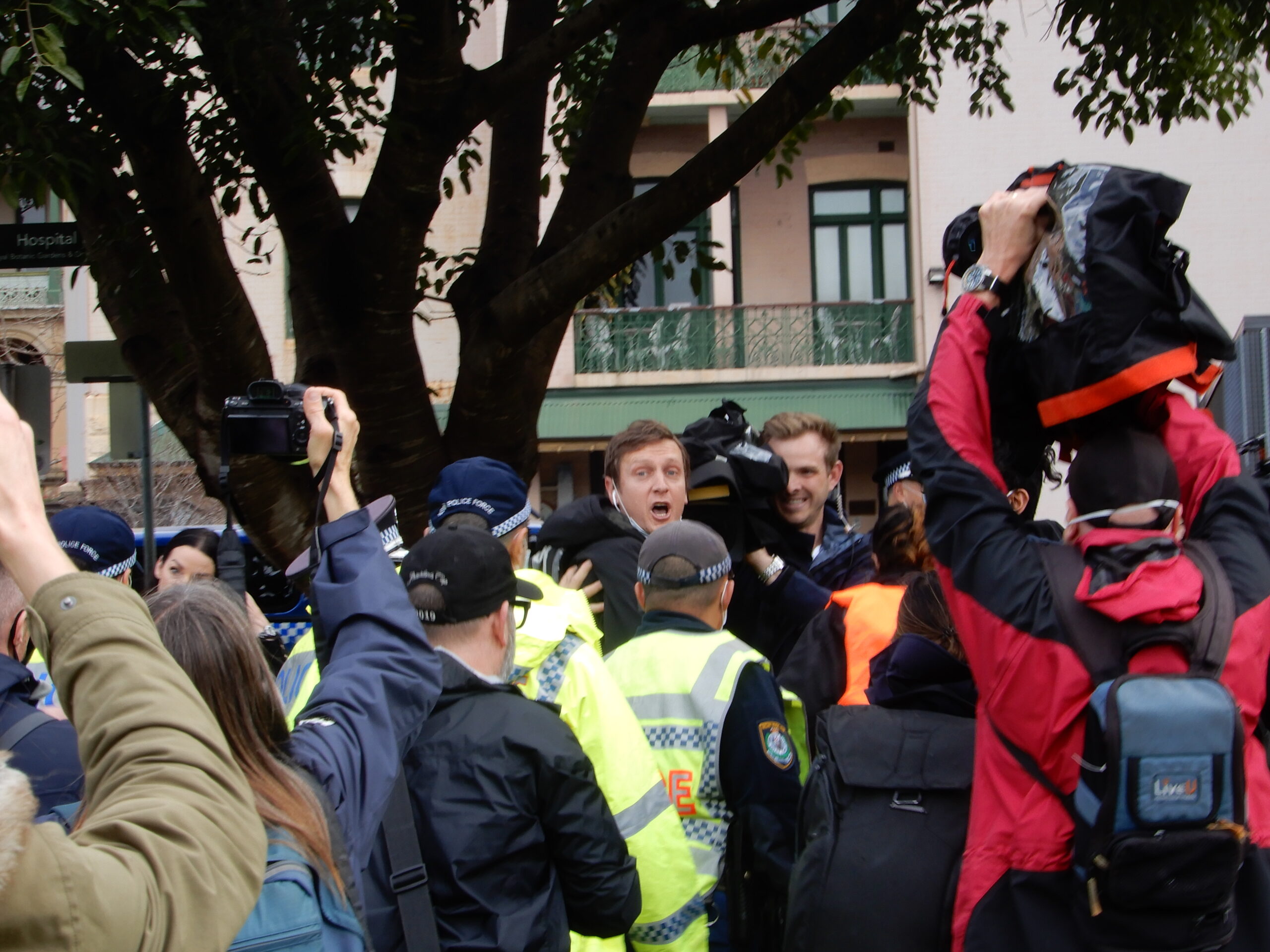
One big open-cut mine
The NSW police commissioner continued to assert that the reason he wanted to shut down this week’s rally was due to the Melbourne Black Lives Matter protest having led to the increase in COVID cases in Victoria. However, the experts have repeatedly shown this isn’t the case.
While NSW Supreme Court Justice Mark Ierace said last Sunday that there is no evidence that the 6 June BLM protest at Sydney Town Hall “led to any transmissions of the COVID-19 virus, in spite of there being at least 10,000 people in attendance”.
But, as far as Australia Corp is concerned, these types of protests just shouldn’t be happening in general. And the coronavirus outbreak is a good reason to crack down on them.
It’s main concern, as it has repeatedly made certain, is extracting fossil fuels from beneath the ground to ship overseas.
Another key Australia Corp concern during the pandemic has been dismantling universities. And on Friday afternoon, around 35 police officers were sent in to break up a rally at Sydney University that consisted of around 50 socially distanced demonstrators protesting against university job cuts.
“Every single person was standing far apart in distinct groups of less than 20,” a demonstrator posted on Facebook.
“This repression by the state will only worsen if we do not stand up at every opportunity we have – we will be back.”


